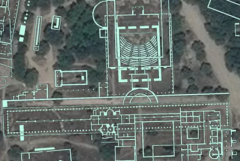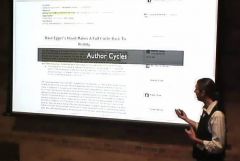Emerging Networks
Emerging Networks are a culture change mechanism intended to shift humanities research towards broadly collaborative, interdisciplinary engagements in contrast to the largely solitary efforts that tend to characterize traditional humanities research. Our goal is for nimble and opportunistic cross-disciplinary collaboration to become part of our ethos in realizing humanistic scholarly curiosity. Emerging Networks funding supports short term collaborative projects that must involve faculty, graduate students and undergraduates from multiple disciplines—across humanities departments and/or the social and natural sciences at Duke.
Projects
|
2014-2015
The 99 Percent: Poverty, Justice and Human Rights creates an intellectual framework for addressing the nexus between poverty and human rights and includes research as well as curricular and practice-based strategies for involving faculty, graduate...Read More about The 99 Percent
|
|
2014-2015
The term “genocide” is a mainstay of contemporary human rights discussion and policy. It is applied to a diverse swath of ethically charged human atrocities, from slavery to microbial disease. But, as Michael Ignatieff writes, “calling every abuse...Read More about The Language of Genocide
|
|
2013-2014
Through three cooperating classes, culture-language-media workshops, a group documentary conducted by artists from the Latino community, and partnerships between Duke students and local high school and community college students, with final outcomes...Read More about Two-Way Bridges
|
|
2011-2012
The co-conveners of this project, Sheila Dillon, Associate Professor of Art, Art History & Visual Studies, and Elizabeth Baltes, PhD candidate in Art History & Visual Studies, have begun with a series of questions relating to undergraduate...Read More about Wired!
|
|
2013-2014
Until recently “academic writing” was primarily understood as a discipline-specific, closed access, single-medium communication produced for a limited audience of academic specialists. In our digital age, however, the concept is being adapted to...Read More about Writing in a Digital Age
|
Pages
- « first
- ‹ previous
- 1
- 2
- 3
- 4





